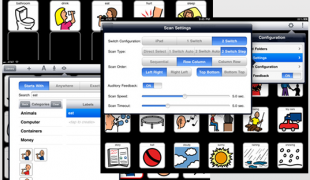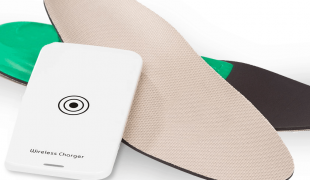- 6904
- 476
- 11
- 12
- 0
- Help Ukraine
About the solution
Markus and his wife had spent a lot of time and money trying to fight his son’s condition so that his reading and writing would improve. However, they weren’t finding a solution.
“I saw my son suffering”, Markus confessed.
So, in 2002, the professor took action and set out to build the solution himself using his computer science expertise. “I thought there must be a way to develop software to treat dyslexia based on our experience as computer scientists,” he said.
That why he came up with Dybuster, a software which creates multi-sensory, computer-based therapy systems for people with dyslexia and dyscalculia. This software was developed at ETH Zurich and evaluated in scientific user studies together with neuropsychologists from the University of Zurich.
As a company, Dybuster was co-founded Christian Vögeli, as a spin-off of the Swiss Federal Institute of Technology in Zurich (with headquarters in Zürich). Its first patent product was released in 2007. Dybuster is now a public company.
“The Swiss company Dybuster AG develops innovative educational software based on neuroscience to ease the struggles of students with learning difficulties. Our programs, Orthograph and Calcularis, foster key literacy and math skills while promoting effective learning. They are developed together with educational therapists and education experts as well as neuropsychologists and computer science specialists from the renowned ETH university in Zurich. Orthograph and Calcularis are suitable for students of any age. Each student’s unique learning style is measured and analysed over time providing a solution tailored to individual needs. This tailored system ensures lasting progress inside and outside of the classroom”, it says on the official website.
This software has two types of licenses available (for schools and families) and can be tested for free.
Adapted from: https://bit.ly/2Y4wAqu
More info: https://dybuster.com/en/
https://vimeo.com/301604722
这些解决方案不应包括使用药物,化学品或生物制品(包括食品);创伤性设备;冒犯性的,商业或内在危险的内容。该解决方案未经医学验证。请谨慎进行!如果您有任何疑问,请咨询健康专家。
DISCLAIMER: This story was written by someone who is not the author of the solution, therefore please be advised that, although it was written with the utmost respect for the innovation and the innovator, there can be some incorrect statements. If you find any errors please contact the patient Innovation team via info@patient-innovation.com
-
-
734
-
6
-
16687

App to teach communication
COMMUNICATION: Communicating, whether by speaking, listening, or other means
CAREGIVING
Autism
Cerebral Palsy
Angelman's Syndrome
Rett’s Syndrome
Website
Social withdrawal or isolation
Difficulty speaking or understanding speech
Promoting self-management
Building Supportive Community Relationships
Promoting inclusivity and social integration
Improving Speech and Communication
Caregiving Support
Child and Adolescent Psychiatry
General and Family Medicine
Neurology
Pediatrics
United States
-
-
-
447
-
2
-
9847

SmartSole GPS - Tracker for people with Alzheimer's, dementia and autism
COMMUNICATION: Communicating, whether by speaking, listening, or other means
WALKING: Walking
CAREGIVING
Alzheimer's Disease
Dementia (Alcoholic Dementia, Vascular Dementia)
Body-Worn solutions (Clothing, accessories, shoes, sensors...)
Difficulty coordinating movements
Loss of balance
Social withdrawal or isolation
Cognitive impairment
Memory loss
Irritability or anger outbursts
Confusion
Restlessness or feeling slowed down
Anxiety
Panic attacks
Difficulty controlling impulses
Mood swings
Feelings of guilt or worthlessness
Suicidal thoughts or behaviors
Hallucinations (perceiving things that aren't there)
Dizziness or lightheadedness
Fatigue
Restoring mobility
Promoting self-management
Building Supportive Community Relationships
Promoting inclusivity and social integration
Improving Speech and Communication
Preventing (Vaccination, Protection, Falls, Research/Mapping)
Raise awareness
Caregiving Support
Child and Adolescent Psychiatry
General and Family Medicine
Internal Medicine
Medical Genetics
Neurology
Pediatrics
Psychiatry
United States
-
-
-
676
-
0
-
8707

Father invents iPhone app to aid his son to communicate
COMMUNICATION: Communicating, whether by speaking, listening, or other means
CAREGIVING
Pitt Hopkins Syndrome
App (Including when connected with wearable)
Building Supportive Community Relationships
Promoting inclusivity and social integration
Improving Speech and Communication
Caregiving Support
Child and Adolescent Psychiatry
General and Family Medicine
Neurology
Pediatrics
United States
-
 zh
zh